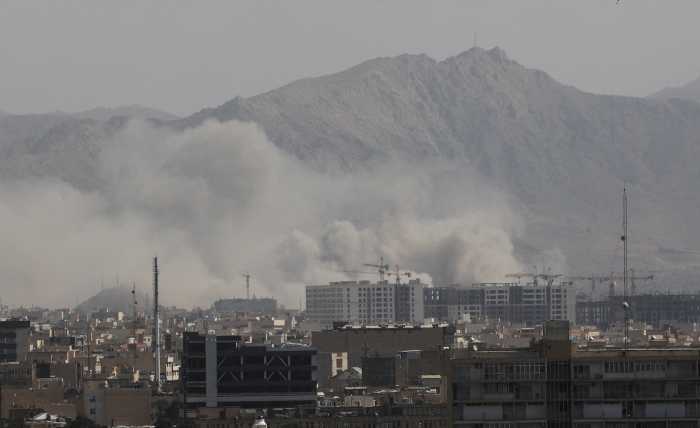As state senators return to Albany today, July 15, there are many more certainties than the previous month.
The Senate will convene and vote on legislation instead of adjourning without taking up any legislative items. The Democrats will be the Majority Party with Malcolm Smith serving as the President Pro Tempore of the Senate and Bronx Senator Pedro Espada Jr. – who was one of the two Senators who voted with the Republicans on June 8, which started the 31 days of inaction – serving as Majority Leader.
The 31-day Senate stalemate finally came to an end last Thursday, July 9, when Espada announced that he was rejoining the Democratic Conference giving the Democrats the same 32-30 majority they had before June 8 when Espada and Queens State Senator Monserrate voted with the Republicans and the Reform Coalition.
After the announcement, the senators returned to session that night, and began voting on bills deemed non-controversial including passing a bill that would allow New York City to raise its sales tax rates by half of one percent that would raise roughly $900 million for the city this fiscal year. It also allowed Mayor Michael Bloomberg to lift a hiring freeze he announced earlier that week to stave off the expected loss in revenue.
“Passage of the city’s revenue bills will allow us to begin hiring the police officers, firefighters and other critically important personnel we need to continue improving the city’s quality of life,” Bloomberg said. “I also want to thank the Senate for passing our tax reforms, which will reduce the tax burdens on many freelancers and small businesses and also help our city continue attracting jobs.”
Monserrate, who was seen as one of the architects who helped woo Espada back to the Democratic Conference, spoke about his actions at a conference call with reporters in Queens on Monday, July 13.
“I had a very clear path at all times,” said Monserrate, who talked about always being a Democrat and supporting the party’s ideals in spite of his vote for a leadership change on June 8. Monserrate also brought up a meeting he had with Senate Democrats at Mama Lina’s restaurant in northern Queens – weeks prior to the July 9 agreement – in order to broker a deal to bring Espada back to the Democrats.
“When people said it would be impossible to bring the Democrats back together I proved them wrong, or we proved them wrong,” Monserrate said.
However, there are still a number of unanswered questions including whether legislation like the Assembly’s bill to extend Mayoral Control of public schools will pass or even come to the floor for a vote.
A number of Senate Democrats, including Brooklyn Senator John Sampson – who is now the Democratic Conference leader and is expected to replace Smith as President of the Senate in January – have expressed objections to the Assembly bill.
Queens State Senator Joseph Addabbo, who represents portions of western and southern Queens, said that because of the chaos the Senate lost valuable time it could have used to negotiate with members of the Bloomberg Administration. But Addabbo added that he expects a bill to come before the Senate for a vote no later than the end of the month.
Meanwhile, Addabbo said he is optimistic there will be a better relationship between the warring political parties, citing a number of rules changes the Senate is expected to adopt, which include making it easier for a senator in the minority party to bring a bill onto the floor.
“I think the conversation and communication between both sides of the aisle is critical so there are no surprises on the floor when we do our session,” Addabbo said.
Monserrate, who acknowledged the month of inaction was at times painful and embarrassing, believes the changes were necessary to make Albany more transparent and effective.
“If we have a better institution that is formed and becomes more responsive to the people we serve, then that’s a victory,” Monserrate said.






























